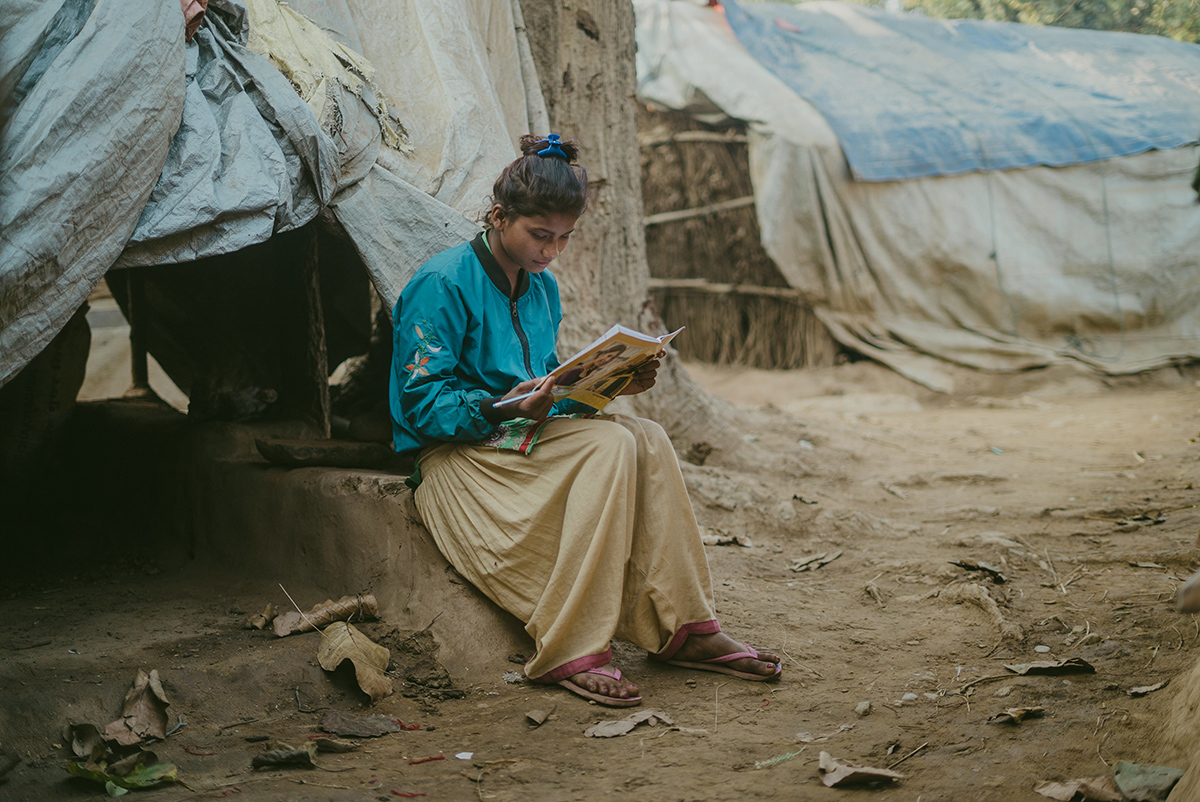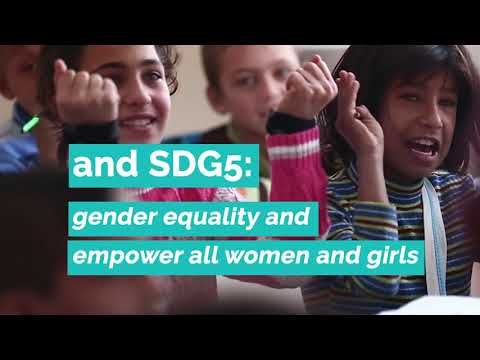At the time of writing, it is 13 weeks into the COVID-19 lockdown in Western Nepal. For those children who cannot access the internet, and therefore the government learning materials, a system is not yet in place to receive guidance or support around their education. In spite of this, recent research found that 81% of the marginalised girls participating in the Sisters for Sisters programme have been studying, by making use of old textbooks or borrowing them from neighbours. The research shows that teachers are concerned about their students but are struggling to find a way to support them with the current restrictions.
Research that compiled the report Current Situation of Communities and Educational Institutions during the COVID-19 Crisis provided an early snapshot of how life has changed since the start of lockdown in Nepal for marginalised girls, and focuses on three themes: wellbeing, education and communication. Sisters for Sisters Education Project II has been working in Nepal since 2017 supporting improved educational outcomes for girls in 49 community schools across four districts: Parsa, Dharding, Lamjung and Surkhet. It is a VSO (Voluntary Services Overseas) project funded by DFID/UK Aid through the Girls’ Education Challenge (GEC).
After 100 days of school closures, how can learners stay motivated?
Girls participating in the study reported that they are losing motivation because they are not receiving instruction and do not have new books to progress with. Furthermore, 89% of girls in the study reported being involved in household and/or agricultural labour, suggesting a significant increase in expectations around domestic labour, which for many girls is the biggest barrier to continued learning. Only 27% of teachers surveyed had plans to contact students and home contact is not a priority for school leaders either. At least 59% of head teachers participating in the study reported that they are unable to access contact details for students’ households until schools open.

How connected to school, and the sense of community it provides, do these students feel 14 weeks since their schools closed … nearly 100 days ago? Schools are important sources of stability. In most cases they provide routine, safety, acceptance and support for children and young people. A ‘sense of belonging’ is important for students, not only for their physical and mental wellbeing, but also for their educational outcomes. A strong sense of belonging can support increased attention, effort in class, persistence, determination, and completion of learning. Conversely, a lack of belonging may have the opposite effect. The girls that are trying to study, but are not being provided with the support they need, are at risk of losing the drive and motivation to continue learning.
A sense of belonging is crucial for learners to fulfil their potential
Learning and education is about developing the tools to fulfil one’s potential. In Maslow’s Hierarchy of Needs, he argues that without a sense of belonging, we cannot feel valued, nor do we have the self-esteem that is necessary to set goals and achieve our potential. We have all felt a longing for connection whilst restrictive measures to mitigate the impacts of COVID-19 have forced us to stay inside. Maslow tells us the need to address this sense of connection and belonging is crucial if we are expecting children to fulfil their academic potential.
Whilst school buildings have closed, it is essential to remind children that they are still part of the school community. One way to achieve this is for schools to keep in touch with their students. In Lamjung district, some headteachers have set up communication channels using WhatsApp groups with their teachers and have delegated contacting students to class teachers, setting weekly assignments. It is no simple task to follow up with hundreds, and even thousands of students, and there will be a number of hurdles that head teachers will have to face, but this contact may be critical to boost children’s wellbeing, identify and provide support for trauma, and keep students motivated to learn.
It can also be seen as a preventative measure during school closures, potentially reducing learning gaps and needs for psycho-social support at the time of reopening. In this sense, schools must consider what they can do now, rather than struggle to meet the students’ more complex and demanding needs in a few months’ or a years’ time. We must be resourceful and creative as we find ways to keep our students motivated to learn. Let us remind children that they are part of something, that they matter, and that they belong to a school community, even when the doors are closed.


